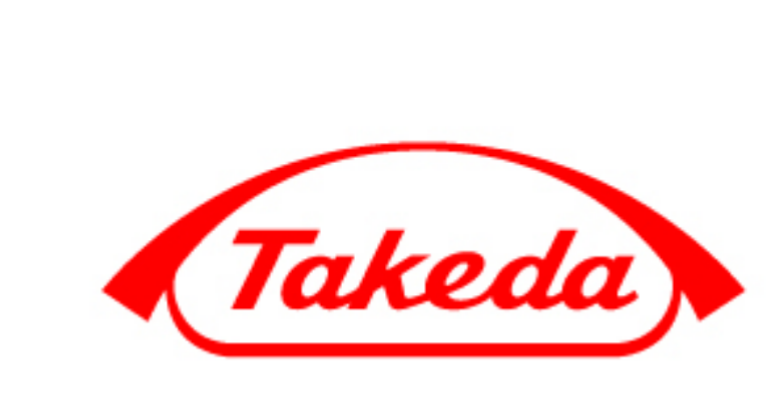
Koki Sato, Country Head, Takeda India -Photo By GPN
- Introduces innovative Gastrointestinal portfolio for patients with Inflammatory Bowel Diseases (IBD) and Ulcerative Colitis and Crohn’s Disease
- Kynteles® is likely to benefit patients with a low risk of serious or opportunistic infections like Tuberculosis3
- Current disease burden for IBD is over 1.5 million in India4
MUMBAI, INDIA, JULY 08, 2020 (GPN) – Takeda India, part of the Takeda Pharmaceutical Company Limited, a global values-based R&D-driven biopharmaceutical leader, today announcedthe expansion of its highly innovative portfolio for patientsin the country with the launch of Kynteles®(generic name: Vedolizumab) as part of its Gastrointestinal (GI) portfolio. GI is Takeda’s second therapeutic area in India after Rare Diseases (Haematology, Genetic Diseases, and Immunology). 5
Kynteles® is used for the treatment of adult patients with moderate to severely active Ulcerative Colitis (UC) and Crohn’s Disease (CD). Kynteles®, more widely known as Entvyio®, has shown favourable safety and efficacy results in treating patients suffering from moderate to severe IBD 6 , 7 , 8 .
Speaking about the launch, Koki Sato, Country Head, Takeda India, said,”At Takeda, we are continuously working towards developing innovative medicinesto considerably improve the quality of life of patients. The launch of our highly innovative GI portfolio is a testimony of our commitment to Indiaand patients living with diseases like UC and CD. Patient access to Kynteles® will further augment our vision of providing additional and innovative treatment options to HCPs treating UC and CD.”
Both UC and CD are chronic idiopathic Inflammatory Bowel Diseases that can be debilitating and sometimes lead to life-threatening complications and require life-long disease management. Therefore, their treatments involve ensuring long-term remission with a proven safety profile. Entyvio®is currently marketed in more than 60 countries. In just five years since its global launch,Entyvio® has touched over 415,000 cumulative patient-years of experience. 12
Talking about Kynteles®, Dr.Sandeep Arora, Medical Affairs Head, Takeda India, said,”India has the highest burden of IBD in Asia and oneof the highest in the world as a result of rapid urbanization, changes in diet and lifestyles. Kynteles®, with its novel mechanism of action, selectively reduces intestinal inflammation that allows long-lasting remission and provides a safe and effective treatment optionfor patients with UC and CD. The safety and efficacy of Kynteles®is well established and proven through robust and comprehensive clinical trials and large real-world evidence programs. Evidence also suggestsimproved quality of life without an associated increase in overall risk of infection.”
There are currently over 1.5 million IBD patients in India.2
About Kynteles®®
Vedolizumab is a gut-selective biologic and is approved as an intravenous (IV) formulation. 9 It is ahumanized monoclonal antibody designed to specifically antagonize the alpha4beta7 integrin, inhibiting thebinding of alpha4beta7 integrin to intestinal mucosal addressin cell adhesion molecule 1 (MAdCAM-1), butnot vascular cell adhesion molecule 1 (VCAM-1). 10 MAdCAM-1 is preferentially expressed on blood vesselsand lymph nodes of the gastrointestinal tract. 11 The alpha4beta7 integrin is expressed on a subset of circulatingwhite blood cells.10 These cells have been shown to play a role in mediating the inflammatory process inulcerative colitis (UC) and Crohn’s disease (CD). 12 , 13 By inhibiting alpha4beta7 integrin, vedolizumab maylimit the ability of certain white blood cells to infiltrate gut tissues. 11
Vedolizumab IV is approved for the treatment of adult patients with moderately to severely active UC and CD,who have had an inadequate response with, lost response to, or were intolerant to either conventional therapyor a tumour necrosis factor-alpha (TNFα)-antagonist. Vedolizumab IV has been granted marketing authorization in over 60 countries, including the United States and European Union, with more than 415,000 patient years of exposure to date. 14
Therapeutic Indications
Ulcerative colitis
Kynteles® is indicated for the treatment of adult patients with moderately to severely active ulcerative colitis who have had an inadequate response with, lost response to, or were intolerant to either conventional therapy or a tumour necrosis factor-alpha (TNFα) antagonist.
Crohn’s disease
Kynteles® is indicated for the treatment of adult patients with moderately to severely active Crohn’s disease who have had an inadequate response with, lost response to, or were intolerant to either conventional therapy or a tumour necrosis factor-alpha (TNFα) antagonist.
Kynteles® treatment should be initiated and supervised by specialist healthcare professionals experienced in the diagnosis and treatment of ulcerative colitis or Crohn’s disease, and to be sold by retail on the prescription of a Registered Gastroenterologist only. Patients, on Kynteles®, should be given the package leaflet and the Patient Alert Card.
Important Safety Information for vedolizumab IV
Contraindications
Hypersensitivity to the active substance or to any of the excipients.
Special warnings and special precautions for use
Vedolizumab should be administered by a healthcare professional prepared to manage hypersensitivity reactions, including anaphylaxis, if they occur. Appropriate monitoring and medical support measures should be available for immediate use when administering vedolizumab. Observe patients during infusion and until the infusion is complete.
Infusion-related reactions
In clinical studies, infusion-related reactions (IRR) and hypersensitivity reactions have been reported, with the majority being mild to moderate in severity. If a severe IRR, anaphylactic reaction, or other severe reaction occurs, administration of vedolizumab must be discontinued immediately and appropriate treatment initiated (e.g., epinephrine and antihistamines). If a mild to moderate IRR occurs, the infusion rate can be slowed or interrupted and appropriate treatment initiated (e.g., epinephrine and antihistamines). Once the mild or moderate IRR subsides, continue the infusion. Physicians should consider pre-treatment (e.g., with antihistamine, hydrocortisone and/or paracetamol) prior to the next infusion for patients with a history of mild to moderate IRR to vedolizumab, in order to minimize their risks.
Infections
Vedolizumab is a gut-selective integrin antagonist with no identified systemic immunosuppressive activity. Physicians should be aware of the potential increased risk of opportunistic infections or infections for which the gut is a defensive barrier. Vedolizumab treatment is not to be initiated in patients with active, severe infections such as Tuberculosis, sepsis, cytomegalovirus, listeriosis, and opportunistic infections until the infections are controlled, and physicians should consider withholding treatment in patients who develop a severe infection while on chronic treatment with vedolizumab. Caution should be exercised when considering the use of vedolizumab in patients with a controlled chronic severe infection or a history of recurring severe infections. Patients should be monitored closely for infections before, during and after treatment. Before starting treatment with vedolizumab, screening for Tuberculosis may be considered according to local practice. Some integrin antagonists and some systemic immunosuppressive agents have been associated with progressive multifocal leukoencephalopathy (PML), which is a rare and often fatal opportunistic infection caused by the John Cunningham (JC) virus. By binding to the α4β7 integrin expressed on gut-homing lymphocytes, vedolizumab exerts an immunosuppressive effect specific to the gut. Although no systemic immunosuppressive effect was noted in healthy subjects, the effects on systemic immune system function in patients with inflammatory bowel disease are not known. Healthcare professionals should monitor patients on vedolizumab for any new onset or worsening of neurological signs and symptoms and consider neurological referral if they occur. If PML is suspected, treatment with vedolizumab must be withheld; if confirmed, treatment must be permanently discontinued. Typical signs and symptoms associated with PML are diverse, progress over days to weeks, and include progressive weakness on one side of the body, clumsiness of limbs, disturbance of vision, and changes in thinking, memory, and orientation leading to confusion and personality changes. The progression of deficits usually leads to death or severe disability over weeks or months.
Malignancies
The risk of malignancy is increased in patients with ulcerative colitis and Crohn’s disease. Immunomodulatory medicinal products may increase the risk of malignancy.
Prior and concurrent use of biological products
No vedolizumab clinical trial data are available for patients previously treated with natalizumab. No clinical trial data for concomitant use of vedolizumab with biologic immunosuppressants are available. Therefore, the use of vedolizumab in such patients is not recommended.
Vaccinations
Prior to initiating treatment with vedolizumab all patients should be brought up to date with all recommended immunizations. Patients receiving vedolizumab may receive non-live vaccines (e.g., subunit or inactivated vaccines) and may receive live vaccines only if the benefits outweigh the risks.
Adverse reactions include : nasopharyngitis, headache, arthralgia, upper respiratory tract infection, bronchitis, influenza, sinusitis, cough, oropharyngeal pain, nausea, rash, pruritus, back pain, pain in extremities, pyrexia, fatigue and anaphylaxis.
Takeda’s Commitment to Gastroenterology
Gastrointestinal (GI) diseases can be complex, debilitating and life-changing. Recognizing this unmet need, Takeda and our collaboration partners have focused on improving the lives of patients through the delivery of innovative medicines and dedicated patient disease support programs for over 25 years. Takeda aspires to advance how patients manage their disease. Additionally, Takeda is leading in areas of gastroenterology associated with high unmet need, such as inflammatory bowel disease, acid-related diseases and motility disorders. Our GI Research & Development team is also exploring solutions in celiac disease and liver diseases, as well as scientific advancements through microbiome therapies.
Ulcerative Colitis and Crohn’s disease lead to the inflammation of the body’s digestive tract. UC affects the large intestine, comprising both the colon and the rectum. The most common UC symptoms are abdominal pain and diarrheal blood. CD may affect any part of the digestive tract and the symptoms include abdominal pain, diarrhoea, rectal bleeding and weight loss. ENDS


Be the first to comment on "Takeda strengthens patient offering in India via availability of Vedolizumab (Kynteles®)"